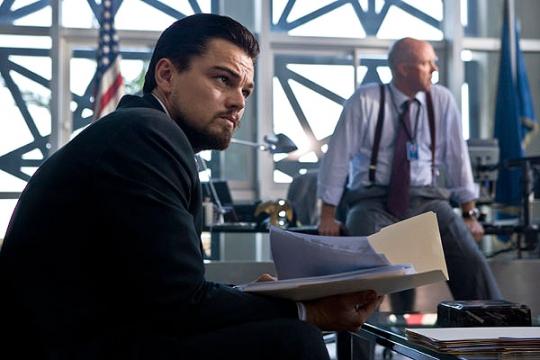Written by Matthew Okada
“I and the public know what all schoolchildren learn – those to whom evil is done do evil in return.” This excerpt from W.H. Auden’s poem, “September 1, 1939,” emerges as the opening image of the newly released action-suspense film, “Body of Lies.” Fittingly, the idea behind the proverb permeates the plot from the outset and exposes the motivations of every character involved.
Set primarily in Amman, Jordan, several years into the War on Terror, “Body of Lies” is jam-packed with piquant political overtones and emotionally searing struggles of both body and mind.
The motion picture is based on David Ignatius’ novel of the same name, and follows the mission of CIA operative Roger Ferris, played by Oscar-nominated actor Leonardo DiCaprio. Ferris suffers shrapnel wounds during an assignment in Iraq, and is transferred to the head of a terrorist-tracking operation in Jordan. Meanwhile, his imperturbable boss, Ed Hoffman, observes and dictates Ferris’ every action by satellite and cell phone from CIA headquarters in Langley, Va. The shrewd, unapologetic Hoffman is portrayed by Russell Crowe, who has worked with “Body of Lies” director Ridley Scott on several recent pictures including “American Gangster” and “Gladiator.”
Together, Ferris and Hoffman fight to crack down on a terrorist organization led by Islamic mastermind Al-Saleem (Alon Aboutboul). In an attempt to procure more intimate information, Ferris forms a precarious partnership with sharp, stately, Jordanian intelligence chief, Hani Salaam, played by British actor Mark Strong. Strong delivers the most crisp and honest performance of the movie, while DiCaprio executes the leading role with raw, distressed passion. Crowe’s part offsets the two characters with a detached, cold impassivity; he couldn’t care less how the job is accomplished or who is affected.
The plot unfolds jerkily, jumping rapidly from place to place and leaving little room for questions or contemplation. A constant barrage of words, ideas, suspicions, ground-shaking explosions and wild firefights batter the audience ferociously. Unexpected twists, betrayals, discoveries, captures and confrontations paint the storyline with energetic color, culminating in a surprising ending.
Similarly, the cinematography is distinctive, lively and gripping – a trademark of Scott’s that’s evident in films like “Black Hawk Down,” “Gladiator,” and “Kingdom of Heaven.” Violent imagery emphasizes the suffering on both sides of the conflict, from exploding vehicles to multiple torture scenes.
Even more powerful, however, is the desperate struggle within Ferris’ heart, mind and soul. Torn between his duty to country and his ethical misgivings about the war itself, Ferris constantly faces decisions between right and wrong. As the movie’s tagline expresses, Ferris is forced to “Trust no one. Deceive everyone.” By the end of the movie, the viewer is left feeling disoriented and incomplete. Perhaps it was Ridley’s intent to incite doubt and uncertainty – sentiments that pervade the script, as well as Americans today. In any case, “Body of Lies” is an intricate, fast-paced, if not original, movie – a mesh of DiCaprio’s “Blood Diamond” and Scott’s “Black Hawk Down” – and it’s worth seeing for the edge-of-your-seat exhilaration alone.







